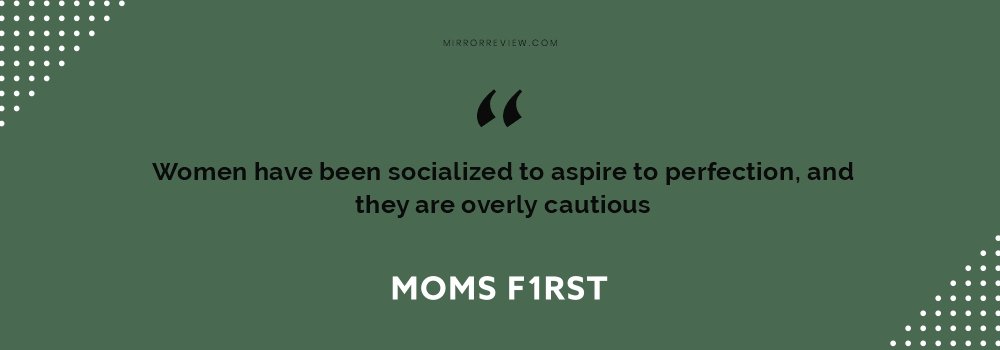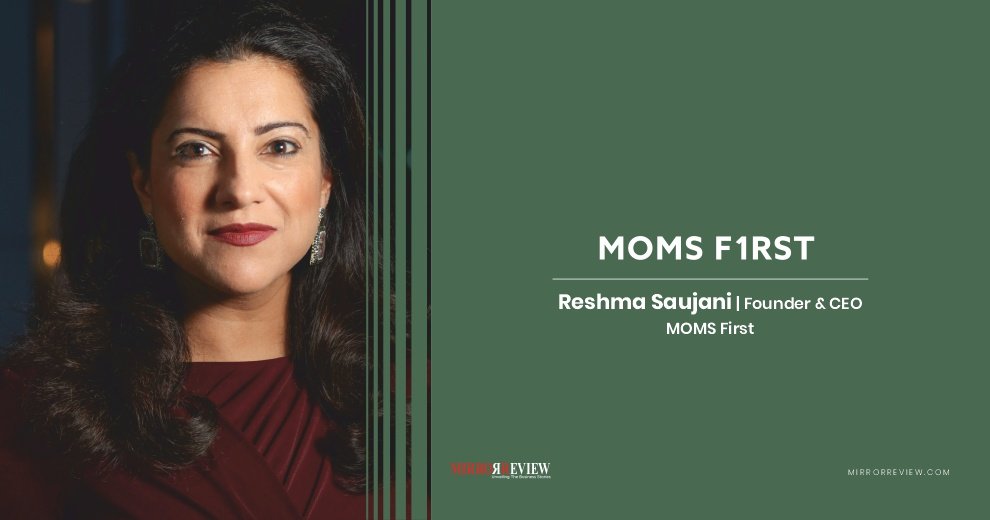Reshma Saujani is a prominent activist and the founder and former CEO of Girls Who Code. She is currently the Founder and CEO of Moms First, which was previously known as the Marshall Plan for Moms. She has spent more than a decade creating movements to fight for women’s and girls’ economic empowerment, including efforts to close the gender gap in the technology sector. Recently, she has fought for policies that will help mothers affected by the pandemic. In addition, Reshma wrote the best-selling book “Brave, Not Perfect.” Her well-known TED talk, “Teach Girls, Bravery, Not Perfection,” has had over one million views worldwide.
Reshma started her career as an attorney and Democratic activist. She made a major political splash in 2010 when she became the first Indian American woman to run for Congress. Reshma founded Girls Who Code after witnessing the gender disparity in computer education firsthand while visiting neighborhood schools during the race. In addition, she held the position of Deputy Public Advocate for New York City, where she spearheaded creative collaborations to assist Dreamers and advance campaign finance reform, among other initiatives.
Reshma’s Career Trajectory: From Politics to Entrepreneurship
Reshma Saujani’s political career, while not her ultimate focus, laid the groundwork for her present-day activism. Saujani’s political journey began long before running for Congress. She actively participated in campaigns, founding “South Asians for Kerry” during the 2004 presidential election. Later, she served on the National Finance Board for Hillary Clinton’s 2008 presidential campaign and became vice-chair of the New York delegation at the Democratic National Convention.
In 2010, Saujani made history by becoming the first Indian American woman to run for Congress, representing New York’s 14th congressional district. While her campaign wasn’t successful, it garnered national attention and showcased her courage to break barriers and challenge the status quo.
Even after the campaign, Saujani remained engaged in public service. She served as Deputy Public Advocate at the New York City Public Advocate’s office, pushing for progressive policies like campaign finance reform. Her political experiences instilled in her a deep understanding of systemic issues and the power of public advocacy, shaping her future initiatives like Girls Who Code and Moms First.
Thought Process of Entrepreneurship to Empower
Reshma Saujani’s journey with Girls Who Code wasn’t just about founding an organization; it was about igniting a revolution. Fueled by a combination of personal experiences and alarming statistics, here’s a glimpse into the thoughts that sparked this game-changing movement. Witnessing the underrepresentation of women in tech fields, particularly amongst minorities, sparked a fire in Saujani. This lack of diversity, she realized, wasn’t just a numbers game; it represented untapped potential and missed opportunities.
Saujani was deeply concerned about harmful stereotypes discouraging girls from pursuing STEM fields. She believed in dismantling these barriers and fostering a culture where girls felt empowered to embrace their tech talent. More than just coding skills, Saujani envisioned Girls Who Code as a supportive community. She wanted to create a sisterhood where girls could encourage and uplift each other, fostering a sense of belonging and shared ambition.
Witnessing the pandemic’s disproportionate impact on mothers ignited a new fire within her, leading to the birth of Moms First. While leading Girls Who Code, Saujani, now a mother herself, witnessed the harsh realities of juggling motherhood and career during the pandemic. Many mothers were forced to leave their jobs due to childcare closures and lack of support. This experience pushed Saujani to confront the systemic challenges faced by mothers, not just during pandemics but throughout their lives. She realized that empowering mothers needed a focused approach beyond solely tech education.
In 2020, Saujani launched The Marshall Plan for Moms, later renamed Moms First, with an ambitious goal: to create a movement advocating for comprehensive policies and cultural shifts that support mothers and their families. Moms First focuses on three key areas:
- Workplaces, advocating for flexible work arrangements, paid leave, and equal pay.
- Culture challenges negative stereotypes surrounding motherhood and fosters a society that values mothers’ contributions.
- Government, pushing for policies like affordable childcare, universal basic income, and mental health support for mothers.
Saujani emphasizes that Moms First isn’t just about policy changes. It’s about building a collective voice for mothers, uniting them to advocate for their own needs and rights. Since its inception, Moms First has garnered significant support from individuals, organizations, and policymakers. It continues to raise awareness and push for meaningful change, empowering mothers to thrive in all aspects of their lives.
Empowering Moms: Key Initiatives Fighting for Mothers’ Needs
Reshma Saujani’s Moms First tackles crucial issues faced by mothers today. Here are their key initiatives:
1. Paid Leave for All: Many workers, especially mothers, lack paid leave options, forcing them to choose between their jobs and caring for themselves or their families. Moms First advocates for guaranteed paid leave for all workers, regardless of gender or employment status. This ensures everyone has the opportunity to care for themselves, loved ones, or newborns without losing financial stability.
2. Affordable Childcare: The cost of childcare often surpasses housing costs, creating an immense financial burden for working families, particularly single parents.
Moms First pushes for affordable and accessible childcare options through government subsidies, tax breaks, and increased childcare supply.
3. Workplace Flexibility: Traditional work arrangements often clash with childcare responsibilities, making it difficult for mothers to manage both effectively. Moms First promotes flexible work arrangements like remote work, part-time schedules, and compressed workweeks, giving mothers more control over their work-life balance.
4. Universal Basic Income (UBI): Financial insecurity can be a major stressor for mothers, impacting their well-being and ability to care for their families. Moms First supports policies like UBI, providing a guaranteed income floor for all individuals, regardless of their employment status.
5. Mental Health Support: Mothers are disproportionately affected by mental health challenges, especially postpartum depression and anxiety, often due to a lack of support and resources. Moms First advocates for increased mental health support for mothers, including accessible and affordable therapy, peer support groups, and mental health education.
A Force for Good: Awards and Honors Bestowed on Reshma
Reshma built Girls Who Code into one of the biggest and most prominent non-profits in the nation over her nine years as the organization’s CEO. Through its award-winning campaigns and New York Times bestseller book series, Girls Who Code has touched 500 million people globally and taught 300,000 girls computer science education through direct in-person programming. Fast Company named Girls Who Code the Most Innovative Non-Profit of 2019.
Reshma started Moms First, in reaction to the COVID-19 pandemic’s disproportionately negative effects on mothers in America. Her goal is to promote laws that recognize and appreciate women’s work both within and outside the house. The campaign is supported by A-list celebrities, activists, and corporate executives, and it has defined the national discourse about how we help mothers. Reshma has been a successful collaborator with leaders of the House and Senate in introducing legislation known as the “Marshall Plan for Moms” at the federal level. She is also an outside activist working to alter culture through innovative awareness initiatives.
Because of her creative approach to creating movements, Reshma has been featured widely on lists such as Fast Company 100 Most Creative People, Forbes Most Powerful Women Changing the World, Fortune 40 Under 40, Fortune World’s Greatest Leaders, and WSJ Magazine Innovator of the Year. She has won the Harold W. McGraw, Jr. Prize in Education.
Reshma is a member of the International Rescue Committee, a group that aids refugees and anyone affected by humanitarian disasters, as well as the Harvard University Board of Overseers. She also holds ex-officio trusteeships at the Museum of Modern Art (MoMA) and the Board of Trusteeships of the Economic Club of New York.
Quotes

Also Read: The Top 10 Revolutionary CEOs of 2024





